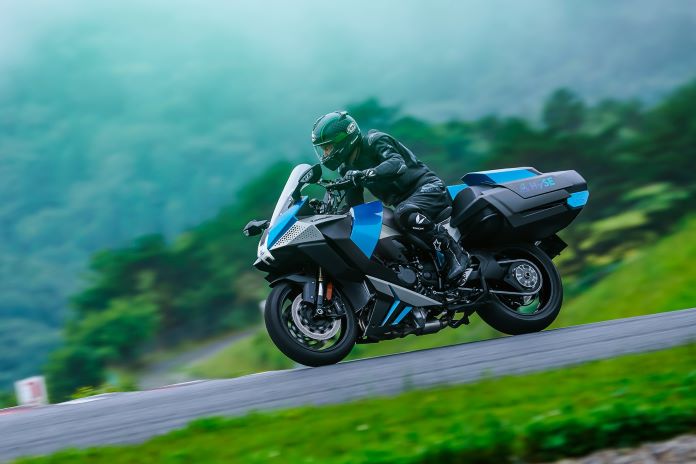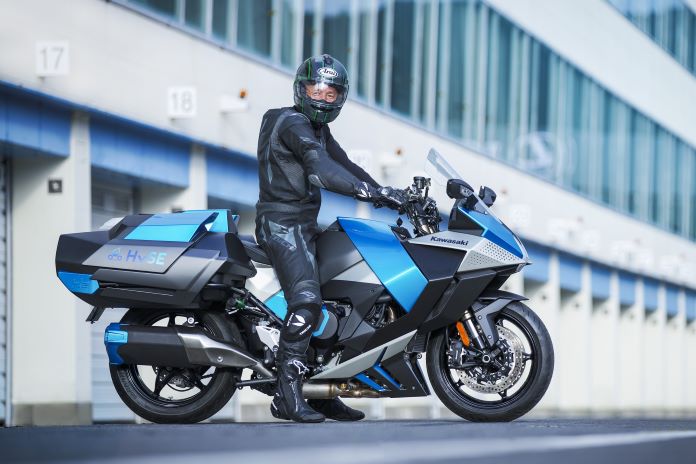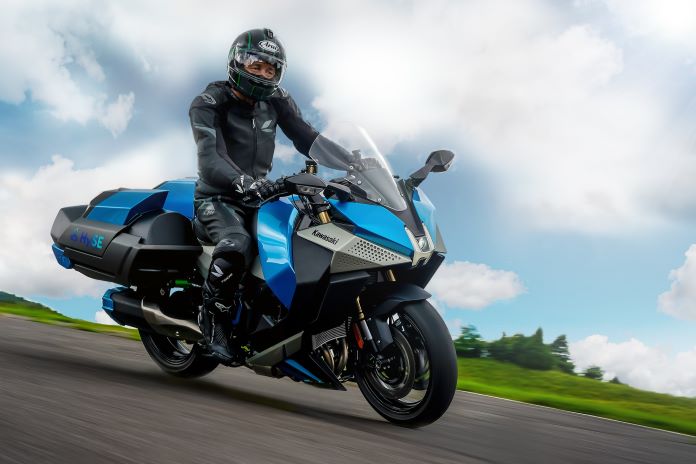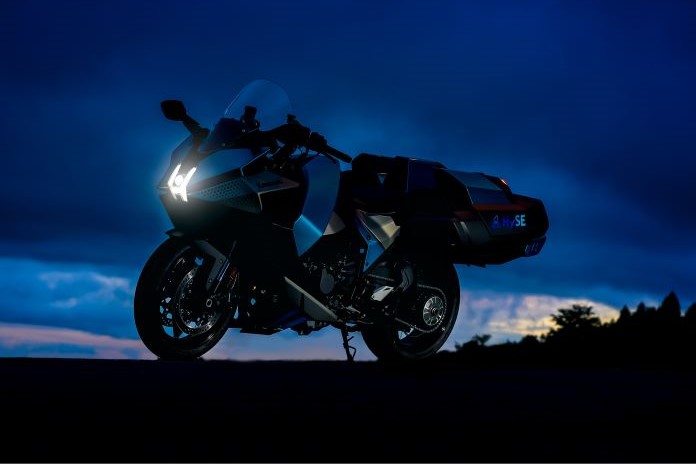
Kawasaki Unveils a Hydrogen-fueled Motorcycle
SPEED AND STRENGTH - Underneath that techy styling is a supercharged H2 engine that burns hydrogen.
By: Kevin Duke Courtesy: RiderMagazine.com
As the motoring world is gradually shifting toward electric propulsion, Kawasaki is putting a new spin on internal combustion with its hydrogen-fueled motorcycle based on the supercharged Ninja H2 – yep, an H2 powered by H2!
Most hydrogen-fueled cars on the market or in development use the compressed gas in a fuel cell that produces electricity, which then feeds an electric motor for propulsion. But this new Kawi internally combusts hydrogen like gasoline-fueled engines.

Kawasaki is boldly looking ahead to a future that includes burning hydrogen.
“Hydrogen engines produce power like conventional gasoline engines,” said the bike’s project leader, Satoaki Ichi. “Hydrogen burns more quickly and under a wider range of conditions than gasoline, making it possible to create a more responsive feeling than ever.”
Kawasaki began development of this bike in March 2023, using the supercharged 998cc inline-Four found in Kawasaki’s Ninja H2 but with modifications to allow direct injection of hydrogen fuel into the cylinders. It operates on hydrogen combustion, so it retains familiar internal-combustion sensations when twisting the throttle, as you’ll hear when viewing the video above.

Baby’s got back! The enormous saddlebags contain hydrogen fuel canisters.
The results of hydrogen’s combustion are water vapor and virtually no carbon dioxide, making this system largely carbon-neutral. Kawasaki Motors Ltd., a member of the Kawasaki Heavy Industries Group, is conducting R&D with the aim of producing a hydrogen ICE motorcycle in the early 2030s.
Kawasaki is a member of HySE (Hydrogen Small-mobility & Engine technology), an association focused on researching hydrogen-combustion technology, from engines to filling and fuel-supply systems. The membership includes the Japanese Big Four motorcycle companies and Toyota.

The hydrogen-powered Kawasaki boasts futuristic edgy styling.
Using hydrogen for fuel has clear advantages in terms of exhaust emissions, but its widespread adoption will be hindered by the extremely limited infrastructure for its delivery into motor vehicles. Hydrogen’s transportation and storage require special facilities that are expensive to set up.
“Timing and availability,” notes Kawasaki, “may vary depending on the hydrogen fuel supply infrastructure and the status of legal regulations in each country.”


The dawn of a new era of internal-combustion motorcycles.
Kawasaki is clearly committed to alternatives to traditional gas-powered internal-combustion engines. In 2023, Kawasaki announced two all-electric motorcycles, the Ninja e-1 ABS and Z e-1 ABS. And in January, Kawasaki unveiled two hybrid motorcycles, the Ninja 7 Hybrid ABS and Z7 Hybrid ABS, which combine an internal-combustion engine with an electric motor, and they can run on either power source independently or on both at the same time.
Disclaimer:
As a service to the sport we all love and follow, Biker Life posts numerous media releases from a wide variety of sources on our website. Due to the large number, and sometimes short time available, it is nearly impossible to review each public release. These articles are written by reporters, writers or press officers who work for various organizations, event organizers, teams, drivers, riders, and other parties, and they do not necessarily reflect the opinions of Biker Life.